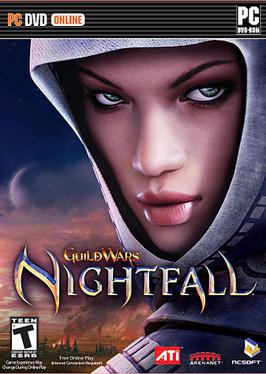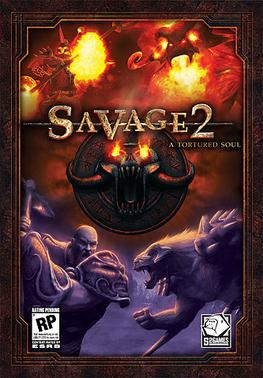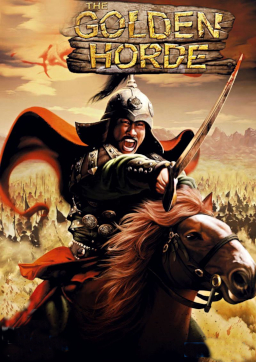Guild Wars is an online role-playing game franchise developed by ArenaNet and published by NCSOFT. The games were critically well received and won many editor's choice awards, as well as awards such as Best Value, Best Massively Multiplayer Online Role-Playing Game (MMORPG), and Best Game. Guild Wars was noted for being the "first major MMO to adopt a business model not based on monthly subscription fees", its instanced approach to gameplay, and the quality of the graphics and play for computers with low specifications. In April 2009, NCSoft announced that 6 million units of games in the Guild Wars series had been sold. The sequel and fourth major entry into the series, Guild Wars 2, was announced in March 2007 and released on August 28, 2012. It features updated graphics and gameplay mechanics, and continues the original Guild Wars tradition of no subscription fees. The Guild Wars series had sold 11.5 million copies by August 2015
Roma Victor is an MMORPG based on the Roman Empire in Great Britain in the latter half of the 2nd century. Roma Victor was developed by RedBedlam Ltd. of Brighton and Hove, England. The in-game world was a 30x30km representation of a section along Hadrian's Wall, including several small villages and Roman forts.
In strategy computer games, of both the turn-based and real-time varieties, a build order is a linear pattern of production, research, and resource management aimed at achieving a specific and specialized goal. They are analogous to chess openings, in that a player will have a specific order of play in mind, however the amount the build order, the strategy around which the build order is built or even which build order is then used varies on the skill, ability and other factors such as how aggressive or defensive each player is.

SimIsle: Missions in the Rainforest is a construction and management simulation game published by Maxis in 1995. Though it was not developed by Maxis, they still referred to it as a "software toy" instead of a "video game" because it remained faithful to the philosophy of the company.
Grinding is a term used in video game culture, referring to the act of repeating an action or set of actions to achieve a desired result at a level of certain difficulty, typically for an extended period of time, such as earning experience points, in-game loot and currency or to improve a character's stats. Grinding is commonly performed in MMORPGs.

A quest, or mission, is a task in video games that a player-controlled character, party, or group of characters may complete in order to gain a reward. Quests are most commonly seen in role-playing games and massively multiplayer online games. Rewards may include loot such as items or in-game currency, access to new level locations or areas, an increase in the character's experience in order to learn new skills and abilities, or any combination of the above.

Guild Wars Nightfall is a fantasy action role-playing game and the third stand-alone campaign in the Guild Wars series developed by ArenaNet, a subsidiary of NCSOFT corporation. Nightfall was released worldwide on October 27, 2006, after, having been in development alongside Guild Wars Factions since November 2005.

SpellForce 2: Shadow Wars is a 2006 real-time strategy and role-playing video game, developed by Phenomic and published by JoWooD Productions. The second instalment in the SpellForce series, the game takes place several years after the events of 2003's SpellForce: The Order of Dawn. In Spellforce 2, players take on the role of a Rune Warrior, who is tasked with restoring peace and order to the land of Eo. The game features a single-player campaign with an expansive storyline, as well as multiplayer modes that allow players to battle against each other online.

Savage 2: A Tortured Soul is a fantasy and science fiction themed video game that combines elements of the first-person shooter, real-time strategy, and action role-playing game genres. It is developed and published by S2 Games. It is the sequel to Savage: The Battle for Newerth and was officially released on January 16, 2008. On December 9, 2008 S2 Games announced that the game was officially freeware, with a paid "Premium Account" option that expanded certain aspects of the game.

Guild Wars is a multiplayer online action role-playing game developed by ArenaNet, a subsidiary of South Korean game publisher NCSOFT, and released in 2005. As the original installment of the Guild Wars series, its campaign was retroactively titled Prophecies to differentiate it from the content of subsequent releases. The game contains a co-operative role-playing portion and a competitive Player versus Player (PvP) portion. In PvP, players may use either their co-operative characters or PvP-exclusive characters who are inherently maximum level and have account-based access to unlocked content.

UFO: Afterlight is a 2007 real-time tactics/turn-based strategy video game and the third in Altar Games' UFO series. Like its predecessors UFO: Aftermath and UFO: Aftershock, it combines squad-level tactical combat with overlying strategic elements inspired by the 1994 classic X-COM: UFO Defense.

Age of Empires III: The Asian Dynasties is the second expansion pack for the real-time strategy video game Age of Empires III developed through a collaboration between Ensemble Studios and Big Huge Games, and published by Microsoft Game Studios. The Mac version was ported over, developed and published by Destineer's MacSoft. The game is the second expansion pack following The WarChiefs. The game introduces three new civilizations; China, Japan, and India. It also introduced minor people, campaigns, maps, and game modes.
World of Warcraft, or WoW, is set in a fictional universe, its primary setting being the planet of Azeroth. The first expansion, The Burning Crusade, introduced a second planet, Outland. Wrath of the Lich King and Cataclysm expanded upon Azeroth and respectively added Northrend, the frigid northern continent of Azeroth, and drastically changed various other continents by destroying some and unveiling new ones. The next expansion, Mists of Pandaria, added Pandaria, the southern continent previously hidden behind a perennial mist cover. Warlords of Draenor introduced the planet of Draenor, a version of Outland in a different timeline before its partial destruction. The Legion expansion took adventurers to the Broken Isles, an island chain near the Maelstrom in the middle of the Great Sea, and the damaged planet Argus, the headquarters of the Burning Legion. The seventh expansion, Battle for Azeroth, added two new island continents to the center of Azeroth: Kul Tiras and Zandalar. The latest expansion, Shadowlands, introduced the eponymous Shadowlands, a realm composed of five major zones: Bastion, Maldraxxus, Ardenweald, Revendreth, and the Maw.

Bicolline is a fantasy live combat experience founded in 1994. It wasn't until 1996 however, that Le Duché de Bicolline and the first official "Grande Bataille" took place and was formed. It is often labeled as a live action role-playing game (LARP) due to the large percentage of players who participate in role-playing. Events take place at a dedicated venue covering 140 hectares and two medieval villages. LeDuché de Bicolline is located in Saint-Mathieu-du-Parc near Shawinigan, QC.
Phoenix Dynasty Online was a fantasy MMORPG developed by Object Software Limited. It was first released in Mainland China in 2006. And then Ingle Games Ltd., the North American Publisher of Phoenix Dynasty Online, announced its Closed Beta on Aug 1st. The Open Beta test began on Oct 9, 2007. It was soon recognized by IGN and released its vault and granted IGN an interview. Until now the game is still under development and new contents have been added continuously. The upcoming 7400 expansion pack is scheduled for July 2009. Phoenix Dynasty Online is set in ancient China. Players can learn and practice the Chinese Kungfu to advance their character and rule the dynasty.

The Golden Horde is a real-time strategy video game for Microsoft Windows, developed by World Forge and published in Russia by Russobit-M in February 2008, in Europe by JoWooD Productions in March 2008, and in North America by DreamCatcher Interactive in July 2008. A spiritual successor to Ancient Wars: Sparta and Fate of Hellas, Golden Horde uses the same game engine as the previous titles – the Ancient Wars Engine (AWE) – and features similar gameplay. One more World Forge game using this engine and gameplay style would follow – Age of Alexander.

Eden Eternal, also known as Finding Neverland Online, or Eternal Atlas—The Refined FNO in Japan, was a free to play anime styled massively multiplayer online role-playing game developed by X-Legend and published internationally in Western European languages by Aeria Games. The Open Beta was released on 15 June 2011.
Tribal Wars (TW) is a browser-based, real-time strategy, massively multiplayer online game set in the Middle Ages. The game is set with each player starting off controlling a small village, with the objective being to slowly expand and conquer new villages through the formation of complex armies and a tactical combat system. The game incorporates multiple components of teamwork, planning, and strategy. The game allows players to collect resources, build armies, construct buildings, combat other armies, and conquer new villages. The game also allows for a level of player-specific customization, in regards to village names, army types, and troop-counts. The game operates under world-specific settings that vary from world to world.

Cookie Run: Kingdom is an action role-playing gacha game by Devsisters and the sixth game in the Cookie Run series.

Everdale was a free-to-play village-building mobile game from Supercell that was in beta from 23 August 2021 to 31 October 2022. It was available in Canada, Switzerland, United Kingdom, Nordics, Australia, New Zealand, Singapore, Hong Kong, Philippines and Malaysia.












